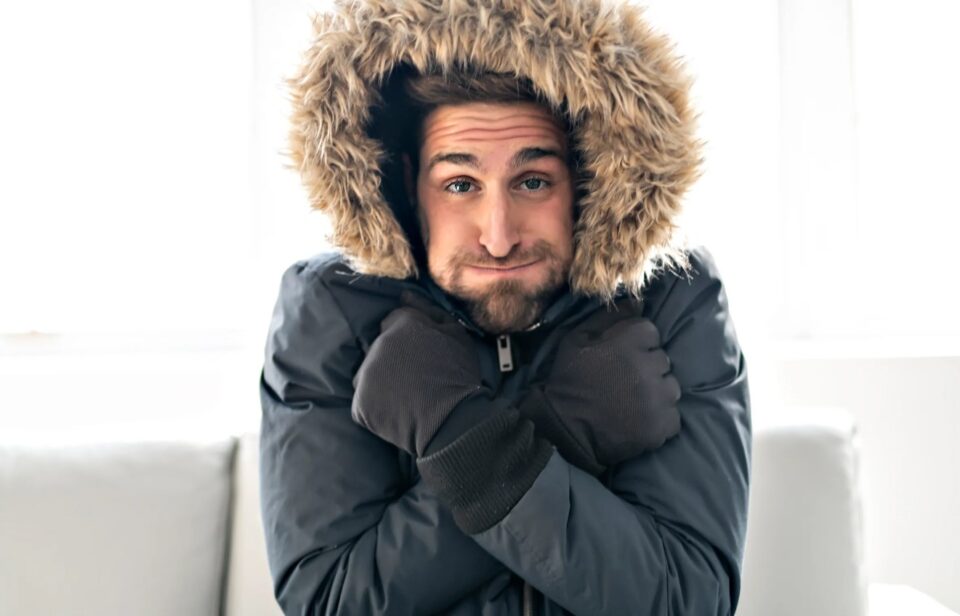Are you having problems with your gas furnace that blows only cold air? When a furnace blows cold air is not a good sign, and it could signify that something is broken and might require reparation. Furthermore, the system is running, consuming energy anyway, and costing money without the result of hot air.
But in some cases, there are simple issues that can be fixed by yourself without needing to call a professional repair service. If you are unsure what is wrong with your gas furnace, you can get assistance here.
Most common reasons for your gas furnace blowing cold air
In general, when the gas furnace is blowing cold air, it is possible to find the cause of the difficulty, looking amongst the most common sources of such a situation.
Here are the common issues for a gas furnace blowing cold air:
1. Dirty filters
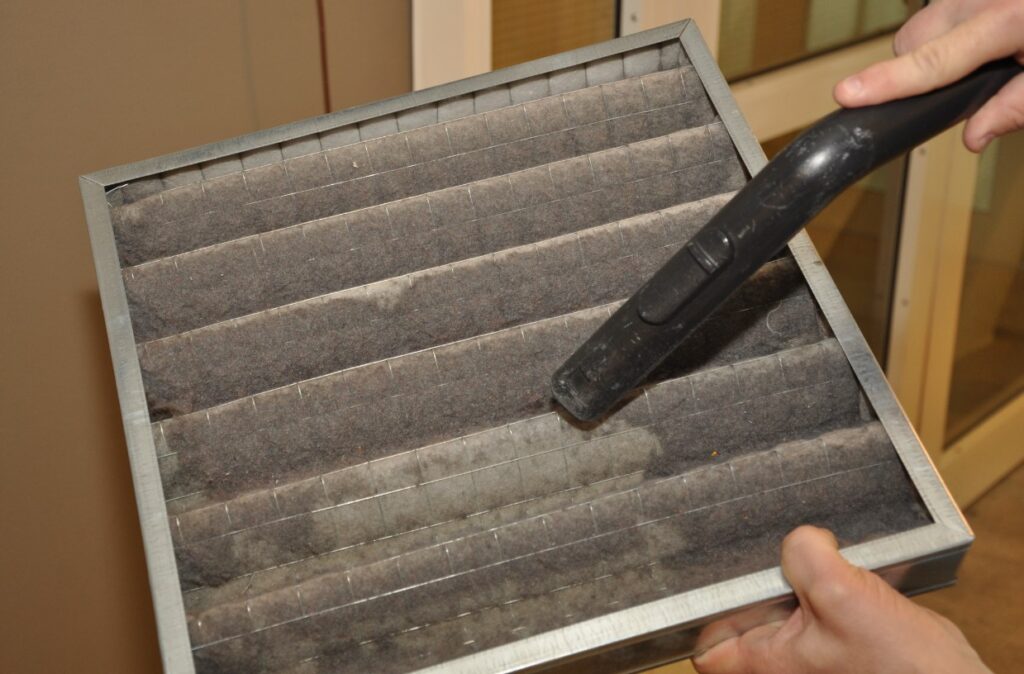
Clogged or dirty air filters are the first thing to check when the gas furnace is blowing cold air. Unfortunately, when the filters are not replaced routinely, they get covered with dust, debris, and other particles that block airflow.
When the airflow is blocked, the furnace tends to overheat or do long heating cycles. When this happens, the heater must blow cold air to lower the temperature. But, unfortunately, the cold air will also circulate through the house.
The solution is to turn off the furnace and inspect the filters. In case they are dirty, replace them. It is common to replace the filters every 3 to 6 months to prevent future problems.
2. Problems with the pilot light
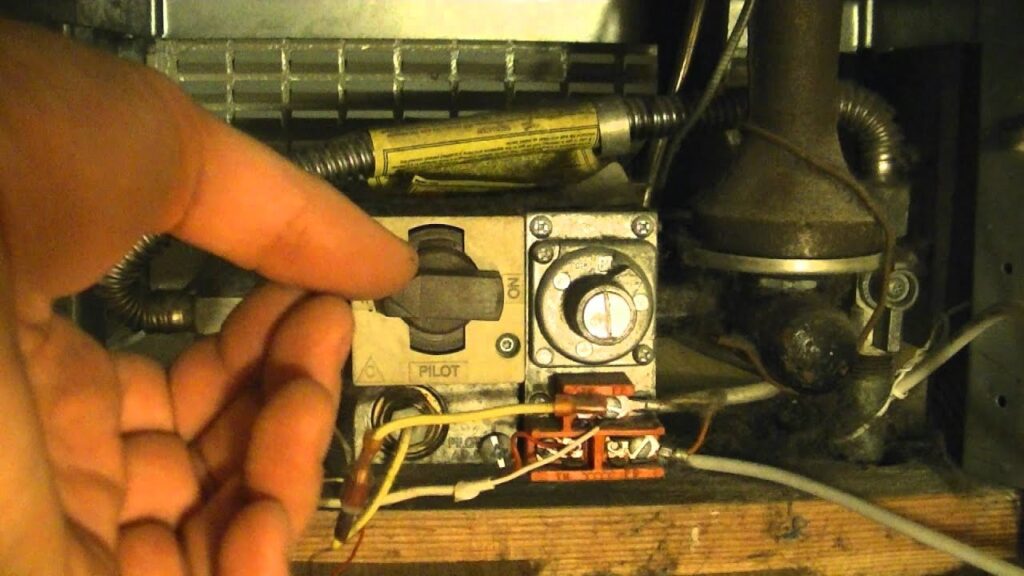
Every gas furnace has a pilot light that ignites the burner so that heat can be produced. However, the furnace could start blowing cold air when the pilot light is not there. In this case, it is necessary to re-light the pilot light.
Generally, every furnace has a manual that shows precisely how to re-light the pilot light.
Older furnaces have pilot lights that stay constantly lit, while new electrical models can turn the pilot light on when necessary. If you experience constant problems with the pilot light, it might be that some components need to be replaced.
It is better to have a professional technician work on replacing the pilot light or its components, since it can be dangerous for those with no experience or expertise.
3. Issues with the thermostat
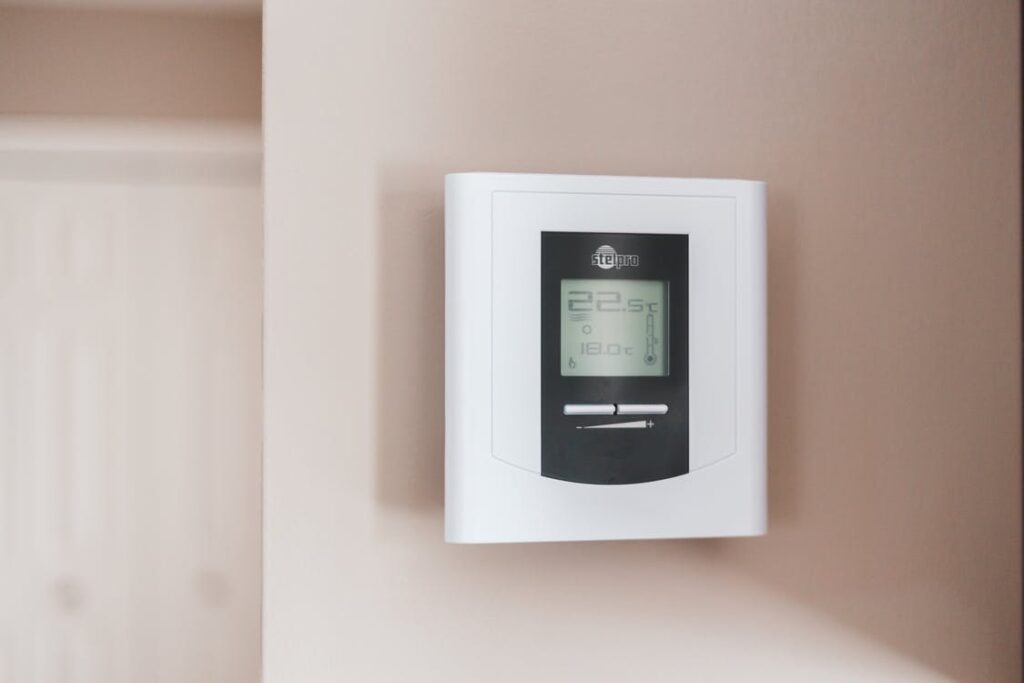
It can happen for a thermostat to be set incorrectly by mistake or by the fact that the operator doesn’t understand the meaning of what is on the menu.
If, by mistake, the thermostat is set to “ON,” then the furnace will constantly run through the day and often produce cold air.
The solution is to change the “On” setting and set the thermostat to “Auto.” It is also possible that you have set the thermostat on a particular program and forgot about it, or someone else did.
A simple inspection can help to determine if the thermostat is wrongly set. Consulting the manual can be a good idea in determining the meaning of the menu and understanding if you are using the correct functions.
4. Problem with the circuit control board
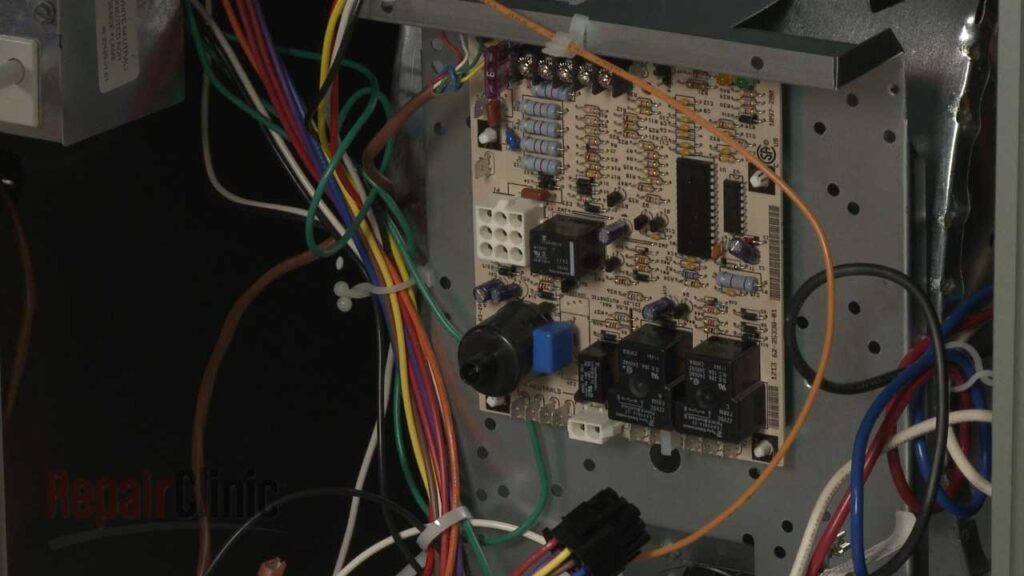
The circuit control board is that part of the system that controls the furnace. If there is something wrong with it, the furnace can receive false signals and could start producing cold air instead of heating the house.
The circuit control board can fail because of age, but also because of lack of cleaning and maintenance. If dirt cumulates on the board, the circuits can become compromised and malfunction.
Water leaking inside the furnace can damage the board, too, causing it to produce only cold air.
5. Clogged condensate line
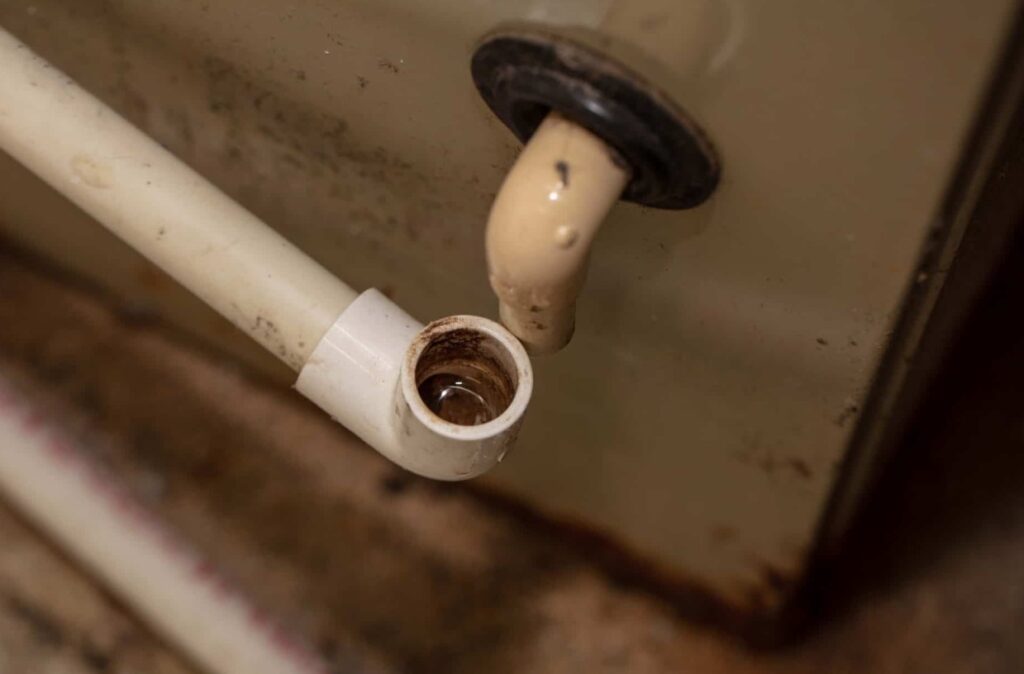
Some furnaces are built with a condensation line that is responsible for moving water and moisture outside the furnace. When the line is clogged, it can prevent the furnace from igniting and generating heat.
If there is no ignition, although the furnace run, the result of it is only warm or cold air.
6. Dirty flame sensor
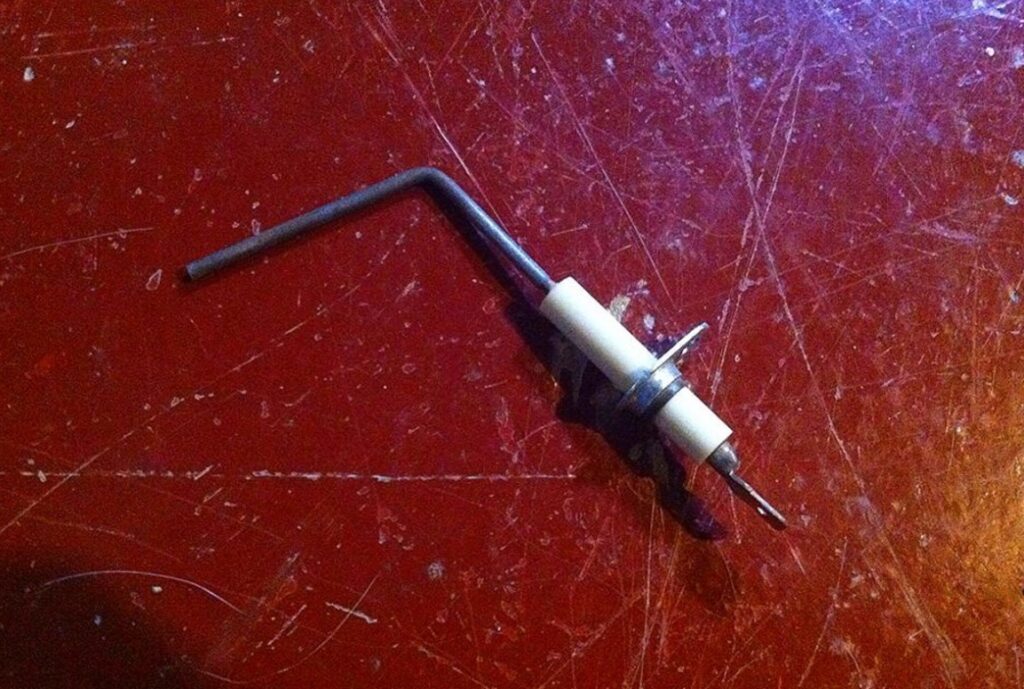
The flame sensor is essential to make sure the furnace heats the house. It is responsible for detecting if more or less heat is necessary and sending signals to the burner to act accordingly. However, if the sensor is dirty, it cannot detect if the house is warm or not.
The result is cold air coming out of the furnace. To prevent this problem, it is only enough or gets the yearly maintenance done, or if you suspect that this is the problem, have a technician do a thorough cleaning.
7. Low gas supply
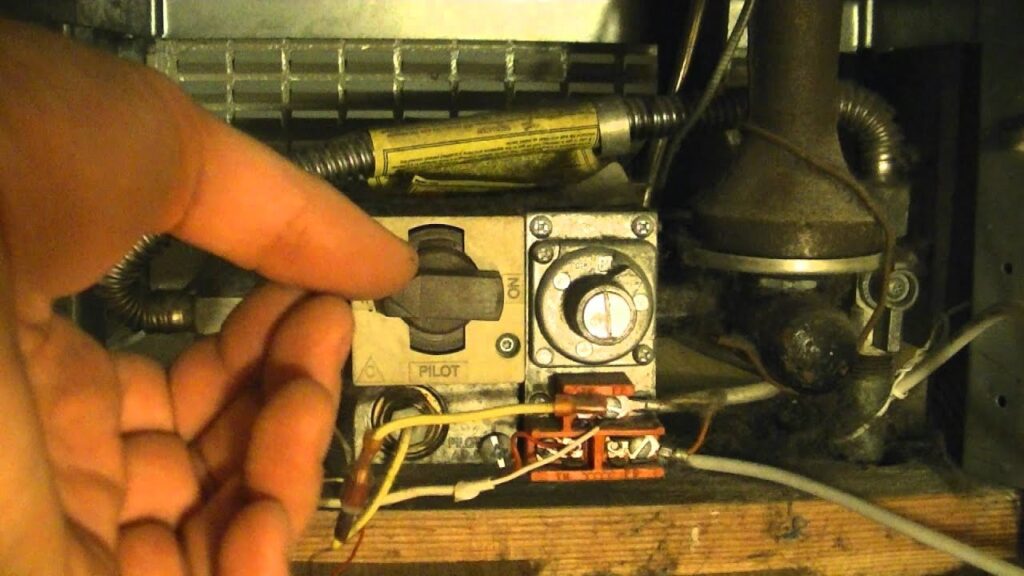
Another cause for a furnace blowing cold air is difficulty with the gas supply. The system is designed to shut off when there is not enough gas reaching the furnace. It might be one of the reasons you are getting cold air in the house.
In general, you can understand that the problem is the gas supply if the pilot light can’t stay lit or if it is not lit at all.
8. Leaking air ducts
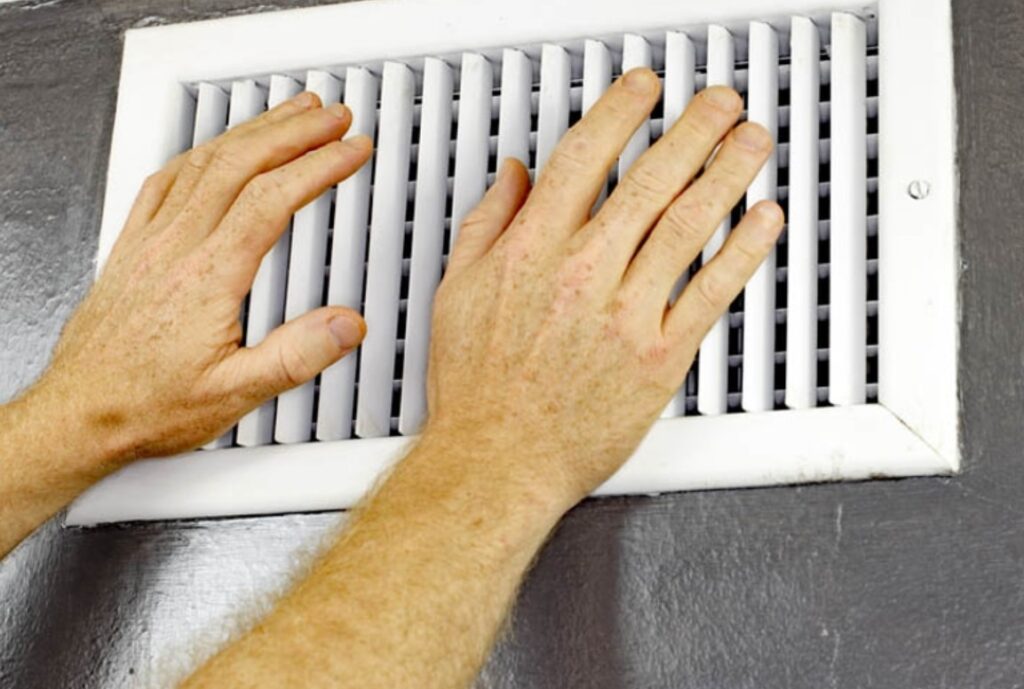
Hot air has to travel through the ducts to reach the house. If there are leaks, the heat is lost on the way and ends up escaping through the holes. The result is cold air arriving inside the house, or little air.
Leaks form up once the system gets older. Therefore, it is a good idea to have the ducts inspected once in a while and any leak found sealed.
Conclusion
A furnace can blow cold air when some of its components are broken or malfunctioning. Fortunately, sometimes it is just a matter of replacing dirty filters or simply checking the thermostat to verify that the settings are entered correctly.
It is not always easy to determine what is wrong with a furnace, and if you are not sure, or your furnace doesn’t produce hot air no matter what you do, then it is better to call a technician to do a full inspection, and recommend handlings.

